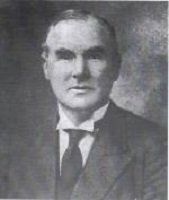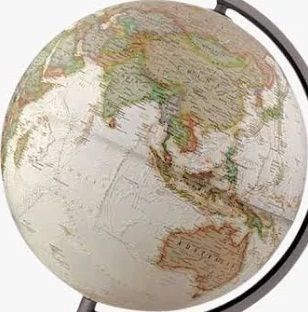
International Rescue


It was about six years ago, maybe seven, that I first came to know of this man and ever since I have wondered why his name is not sung from the roof-tops, not least by the organisation that he presided over for seven years, the SFA. His name is Robert Campbell and his club was Perth's St. Johnstone.
He was born in Killin in 1872 the son of police constable from the north, from Duthil on Speyside, and a mother from Highland Perthshire, in fact Fortingall at the other end of Loch Tay. However, the family was soon to be transferred to Perth, living on Market St. in 1881, Bob just seven, and in 1891 on Methven St. It makes it difficult to believe that, already a Law Clerk Apprentice at recorded seventeen but actually a year older and clearly a talented footballer, he would ever have returned to play, as said, for Breadalbane, already then and still Aberdeldy's main club. What is known is that on 29th October 1892, so just twenty he, very much an amateur, made his debut for St. Johnstone in a 1-1 draw with then city rivals, Fair City Athletic. At the time The Saints were playing outwith any league but with Campbell there even after retirement as a player, now a qualified solicitor, married to Henrietta Hampton in 1903 and with a growing family his drive to play at a higher level remained. In 1910 and already Honorary President he was instrumental in the club becoming professional and a Limited Company, of which he would become a Director and Chairman and remains so for the almost forty years until his death, still in Perth in 1938.
It was then under Campbell's watch that in 1911 St. Johnstone joined the Scottish League, replacing Port Glasgow in the Second Division. The club finished fifth, tenth, fifth once more before the War years, the directors picking the team, before post-Great War in 1919 it appointed its first manager, Peter Grant. He lasted just a season, replaced by Perth-born, former-player James Buchan for two, this as Campbell in 1924 also would see the club move from its first pitch, the Recreation Ground, to it second, Muirton Park and at the end of the 1924-5 season be promotion to the First Division under third manager, David Taylor.
Taylor would remain place until 1931 the club rising from nineteenth to ninth in four seasons. Meantime, Bob Campbell had become a respected and increasingly prominent figure in the Scottish game leading in 1927 to his selection as President of the Scottish Football Association (SFA), the first outwith the Central Belt. And there too he would make a mark, indeed several.
The first was to get Scotland looking outwith Britain. It was under his watch that in the summer of 1927 the first SFA tour abroad took place - twenty games, nineteen wins and a single loss to a Toronto All-Stars Select including five players from local team, Ulster. And Campbell remained associated with Canadian football, in 1930 donating the Campbell Cup, the country's top trophy to the War.
The second, with the directors of the SFA still charged with team selection and therefore he the ultimate arbiter, would be the following year. There are still suggestions today that Scotland had been performing poorly at international level. Nothing could be further from the truth. In twenty-four internationals post-War just four had been lost but importantly 1927 had seen defeat to England and at home at Hampden Park, Dixie Dean scoring the winner twelve minutes from time. And it was the prospect of a second loss in a row with England having the Wembley advantage that was the problem and to which Campbell now as hands-on chairman and the other selectors turned their attention. They looked at the pitch and at what they had in terms of player resources. They looked at the weather forecast and at how to get the best from the team of the day. And they made a series of what were to be enlightened decisions despite heavy criticism. The players were allowed to go out in London the night before. They chose a twenty-one year old, amateur goal-keeper in Jack Harness and in Tommy Law a twenty-year-old left-full back for his first cap. They chose in Tom Bradshaw, his only cap, a defensive centre-half to take care of Dean and playing in a defensive Cross, i.e. between and just behind the half-backs or in front of the full-backs, you make your choice. They chose too wee, returning Hughie Gallagher to plough through the expected mud in leading the line but then they had Alan Morton on one wing, Alex Jackson on the other and Alex James to fetch, carry and shoot. And it all worked. Despite the Scottish post being hit in the first minute the away team, the Wembley Wizards, were two up at half-time and five up until the eighty-ninth minute, 1-5 at full-time, with James commenting post-match that it could have been ten.
Who knows whether the outcome provoked a reaction or not but it was not long after that pressure began to build against the automatic release for internationals, particularly week-end ones, of non-English players contracted to English clubs. The initial source was probably Arsenal, which is bizarre as its manager, Herbert Chapman, had his playing-career more or less saved by and therefore his managerial successes based on a Scottish international and coach, John Cameron. But pressure there was, this as Bob Campbell enabled his national team to play the first ever international games against non-Home Nations. In the summer of 1929 an SFA-recognised team went on tour to Norway, Germany and The Netherlands followed by France in May 1930, by when there was about to be stand-off at home. That stand-off would mean for that year's October Scotland-Wales encounter no Anglo-Scots were in the team and it would remain that way for two full seasons against it, England and Ireland with minimal exceptions - James Connor of Sunderland in September 1930 and the 1931 Summer Tour to Austria, Italy and Switzerland. In other words it would take Bob Campbell two years until 1932 to reverse the situation with the possibility that had he not succeeded a precedent might have been set for clubs anywhere and everywhere to dictate, who could play for their country and when, or even that it would be none.
In fact 1932 was to be a good year all-round. Even as Robert Campbell would step down as SFA President in 1933 with every indication that he was exhausted he had continued to chair St. Johnstone and by then see it re-promoted a season into Tommy Muirhead's five very successful years as manager. In 1933 St. Johnstone finished fifth, between Celtic and Aberdeen and in 1934, 1935 and 1936 ninth, fifth again and seventh at which point and Muirhead's departure to Preston there was a wee stumble before recovery. However it was to be one the Chairman would not quite see. On 6th April 1938 at the age of just sixty-five he, the man to have overseen the second greatest victory ever of Scotland over England, Scotland's first independent move into World football and the possible saving for all, in Britain and elsewhere, of the international died at home after several months of illness with hardly a remark. It is only in recent times that a stand at St. Johnstone's present home of McDiarmid Park has been named for him but otherwise there remains much to be done at home and internationally in properly matching recognition to exceptional achievement.
